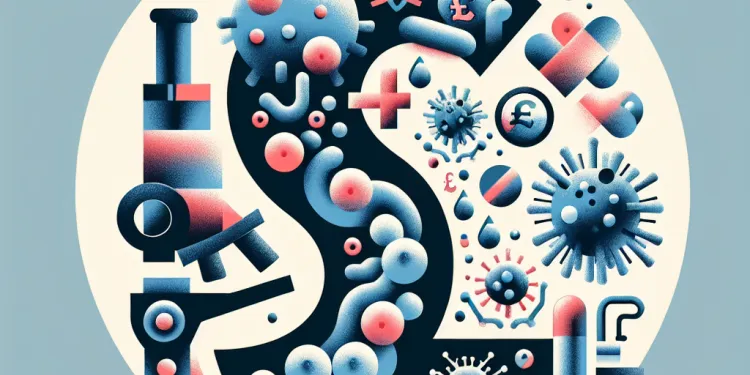
Find Help
More Items From Ergsy search
-
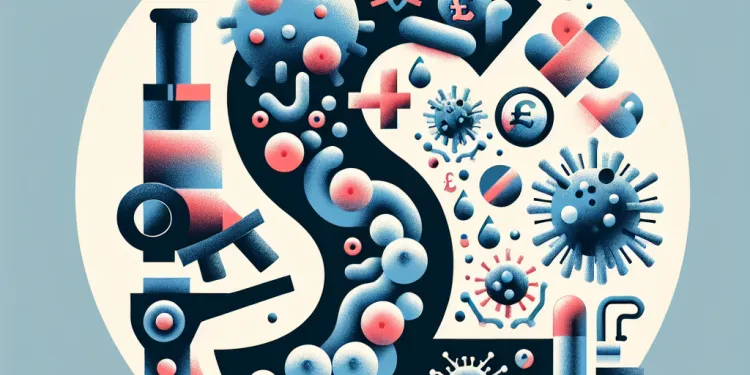
What is chlamydia?
Relevance: 100%
-

NHS - Chlamydia
Relevance: 100%
-

Chlamydia: The Silent Threat
Relevance: 96%
-
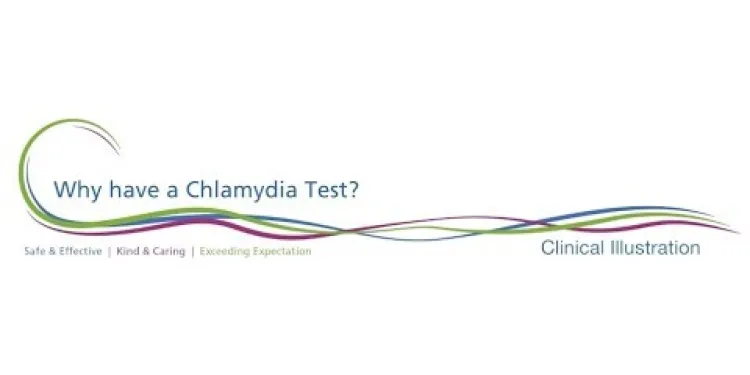
Getting tested for Chlamydia
Relevance: 94%
-
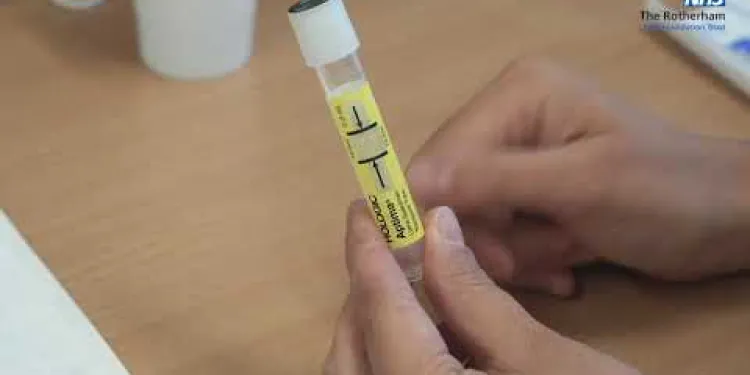
Urine test for Gonorrhoea and Chlamydia
Relevance: 89%
-

Urine test for Gonorrhoea and Chlamydia
Relevance: 89%
-

Pharyngeal swab for Gonorrhoea and Chlamydia
Relevance: 88%
-
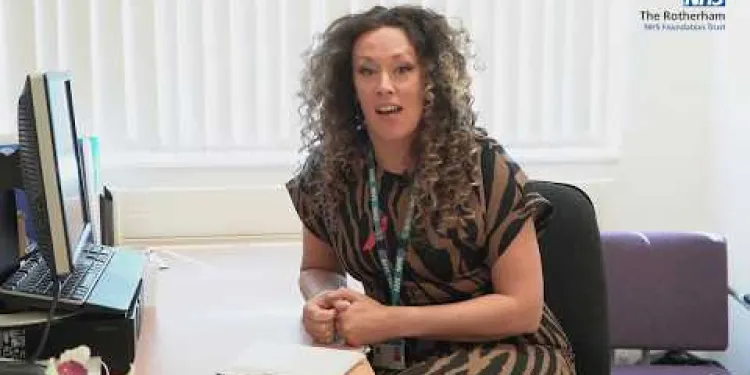
Vaginal Swab test for Gonorrhoea and Chlamydia
Relevance: 84%
-
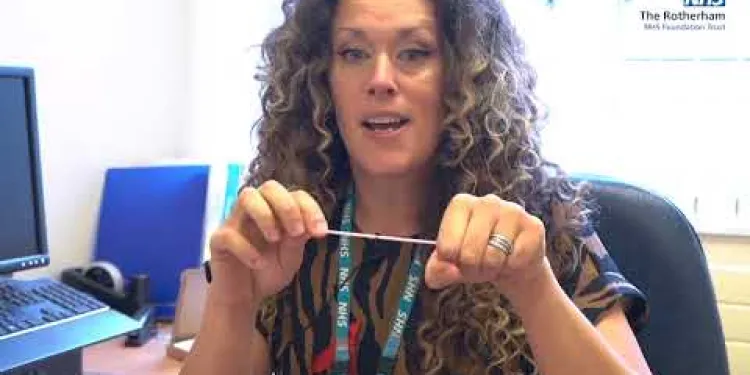
Rectal swab test for Gonorrhoea and Chlamydia
Relevance: 83%
-

Sexually transmitted infections STIs
Relevance: 24%
-

NHS STI (Sexually Transmitted Infections) Information Video
Relevance: 23%
-

Understanding Your Sexual Health - Pelvic Inflammatory Disease
Relevance: 21%
-

BSL Pelvic inflammatory disease (PID)
Relevance: 20%
-

Reactive arthritis
Relevance: 19%
-

Let's Talk Sexual Health - Home Self Testing Kits
Relevance: 19%
-

Let's Talk Sexual Health - Home Self Testing Kits
Relevance: 15%
-

Female infertility explained
Relevance: 13%
-

What is a bubo?
Relevance: 12%
-
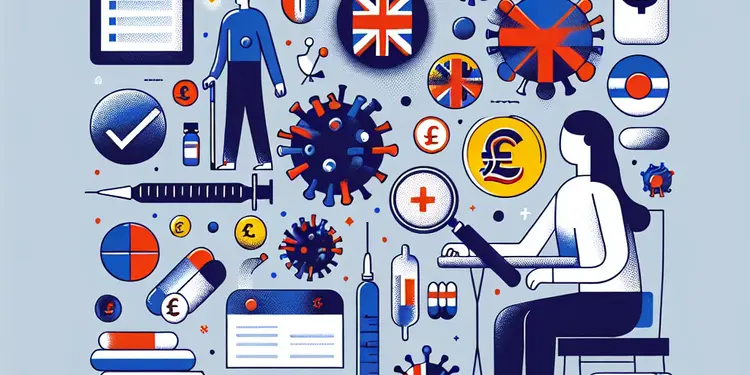
What role do infections play in chronic fatigue syndrome?
Relevance: 12%
-
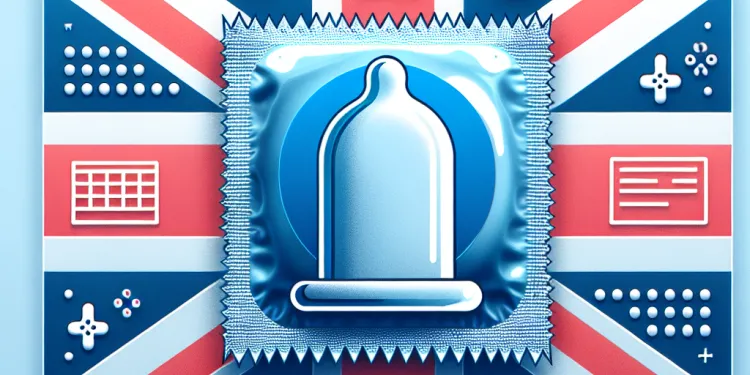
Can using condoms fully protect against HPV?
Relevance: 6%
What is Chlamydia?
Chlamydia is a common sexually transmitted infection (STI) caused by the bacterium Chlamydia trachomatis. It primarily affects the genital tract but can also infect the throat and eyes. Chlamydia is especially prevalent among young people aged 15-24 and is one of the most frequently reported bacterial STIs in the UK.
Causes and Transmission
The infection is transmitted through unprotected sexual contact, including vaginal, anal, and oral sex with an infected person. Chlamydia can also be transmitted from mother to baby during childbirth, potentially leading to eye infections or pneumonia in newborns. It's important to note that chlamydia can be contracted even if symptoms aren’t present in the infected person.
Symptoms of Chlamydia
Many people with chlamydia experience no symptoms, making regular testing crucial. When symptoms do occur, they typically appear 1 to 3 weeks after exposure. In women, symptoms can include unusual vaginal discharge, pain during intercourse, bleeding between periods, and discomfort in the lower abdomen. Men may experience discharge from the penis, burning sensation when urinating, and pain or swelling in the testicles.
Diagnosis
Chlamydia can be diagnosed through a simple urine test or a swab from the cervix, vagina, urethra, anus, or throat. In the UK, chlamydia testing is readily available at sexual health clinics, some GP surgeries, and local community settings. Home testing kits are also obtainable, offering discreet and convenient options for people wanting a private diagnosis.
Treatment
The good news is that chlamydia is treatable with antibiotics. The most commonly prescribed are azithromycin and doxycycline. It’s crucial for infected individuals to complete the full course of antibiotics even if symptoms disappear. Sexual partners should also be notified, tested, and treated to prevent reinfection. After treatment, it’s recommended to avoid sexual intercourse for 7 days to ensure the infection has cleared.
Prevention
Preventing chlamydia involves practising safer sex methods. Using condoms consistently and correctly during any form of sexual activity significantly reduces the risk of transmission. Regular STI testing and open communication with partners about sexual health can further help in preventing the spread.
Risk Factors and Complications
Untreated chlamydia can lead to severe health complications. In women, it can cause pelvic inflammatory disease (PID), which can result in chronic pelvic pain, ectopic pregnancies, and infertility. In men, it may cause epididymitis and, in rare cases, infertility. Early detection and treatment are crucial in avoiding these complications.
Conclusion
Chlamydia is a common and treatable STI, yet it poses significant health risks if left untreated. Awareness, testing, and preventive measures are vital in managing and reducing its spread across the UK. Ensuring access to sexual health services remains essential in maintaining public health and individual well-being.
What is Chlamydia?
Chlamydia is a common infection you can get from having sex. A bacteria called Chlamydia trachomatis causes it. It mostly affects private parts but can also hurt your throat and eyes. Many young people, aged 15-24, have this infection in the UK.
Causes and Transmission
You can get chlamydia by having sex without a condom. This includes sex in different ways: vaginal, anal, or oral sex with someone who has the infection. A mother can also give it to her baby during birth. This might cause eye infections or lung problems in babies. You can have chlamydia even if you don’t see any signs.
Symptoms of Chlamydia
Most people with chlamydia do not feel sick, so it’s important to get tested. If there are signs, they usually show up 1 to 3 weeks after catching it. Women might notice strange discharge, pain during sex, bleeding when it’s not their period, or a sore tummy. Men might see discharge from their penis, feel burning when peeing, or have sore or swollen testicles.
Diagnosis
You can find out if you have chlamydia with a urine test or a swab from private parts or throat. In the UK, you can get tested at places that focus on sexual health, some doctors' offices, and local services. You can also use a home test kit to check privately.
Treatment
The good thing is, chlamydia can be cured with medicine called antibiotics. The ones used most often are azithromycin and doxycycline. You must take all the medicine, even if you start to feel better. People you had sex with should also get tested and treated to stop it from coming back. After treatment, wait 7 days before having sex again.
Prevention
To avoid getting chlamydia, always use condoms the right way when you have sex. Getting tested for STIs regularly and talking to your partners about it also helps stop it from spreading.
Risk Factors and Complications
If you don’t treat chlamydia, it can cause serious health problems. For women, it can cause pelvic inflammatory disease (PID), which can hurt your belly, cause pregnancies outside the womb, or lead to not being able to get pregnant. For men, it can cause sore testicles and, rarely, problems having babies. Finding and treating chlamydia early helps stop these issues.
Conclusion
Chlamydia is common and can be cured, but it can harm your health if not treated. Knowing about it, getting tested, and being careful can help control and lower the number of infections in the UK. It’s important to keep sexual health services available for everyone’s health and safety.
Frequently Asked Questions
What is chlamydia?
Chlamydia is a common sexually transmitted infection (STI) caused by the bacterium Chlamydia trachomatis. It can infect both men and women and can cause serious damage to a woman's reproductive system.
How is chlamydia transmitted?
Chlamydia is transmitted through vaginal, anal, or oral sex with someone who has the infection. It can also be passed from an infected mother to her baby during childbirth.
What are the symptoms of chlamydia?
Many people with chlamydia do not experience symptoms. If symptoms occur, they may include abnormal genital discharge, burning sensation during urination, rectal pain, bleeding or discharge, and lower abdominal pain.
Can chlamydia be cured?
Yes, chlamydia can be cured with the appropriate antibiotics. It is important to complete the full course of treatment to ensure the infection is completely eliminated.
What happens if chlamydia is left untreated?
If left untreated, chlamydia can cause serious health problems, especially for women. It can lead to pelvic inflammatory disease (PID), infertility, and ectopic pregnancy. In men, it can lead to infection of the urethra, prostate gland, and testicles.
How common is chlamydia?
Chlamydia is one of the most common STIs worldwide. In the United States, it is the most frequently reported bacterial STI, with millions of new infections reported each year.
Who is at risk of contracting chlamydia?
Anyone who is sexually active can contract chlamydia, but it is most common among young people, especially those aged 15 to 24 years. Having multiple sexual partners increases the risk.
How can I prevent chlamydia?
The best way to prevent chlamydia is by abstaining from sexual activity or maintaining a mutually monogamous relationship with a partner who has tested negative for STIs. Using condoms correctly every time you have sex can also significantly reduce the risk.
Can chlamydia cause infertility?
Yes, if left untreated chlamydia can lead to female infertility due to damage to the fallopian tubes. It can also cause epididymitis in men, which can lead to infertility.
Can I get chlamydia from oral sex?
Yes, chlamydia can be transmitted through oral sex, leading to infections in the throat.
How is chlamydia diagnosed?
Chlamydia is diagnosed through laboratory tests, including urine tests or swabs from the affected area.
Can men get chlamydia?
Yes, men can get chlamydia, and it can infect the urethra, rectum, or throat.
How long after exposure do symptoms of chlamydia appear?
Symptoms can appear within 1 to 3 weeks after exposure, but many people never develop noticeable symptoms.
What should I do if I test positive for chlamydia?
If you test positive for chlamydia, take all of the prescribed antibiotics even if symptoms disappear and inform your sexual partners so they can get tested and treated.
Can I get chlamydia again after I've been treated?
Yes, having chlamydia once does not confer immunity. You can get infected again if you have sex with an infected person.
How long does it take to recover from chlamydia?
After starting treatment, symptoms usually improve within a few days, but it is important to abstain from sexual activity for 7 days after a single dose treatment or until completion of a 7-day course.
Can chlamydia be transmitted through non-sexual contact?
Chlamydia is primarily transmitted through sexual contact. It is not spread through casual contact such as kissing, hugging, or sharing utensils.
Is it necessary to get retested after chlamydia treatment?
Yes, it is recommended to get retested about three months after treatment to ensure the infection has been fully cleared, particularly for sexually active individuals.
Can chlamydia infection affect pregnancy?
Yes, chlamydia can cause complications in pregnancy, including premature birth and eye or lung infections in newborns.
Are there any long-term effects of chlamydia?
If untreated, chlamydia can lead to long-term health issues such as chronic pelvic pain, infertility, and increased risk of ectopic pregnancies.
What is chlamydia?
Chlamydia is a kind of germ that can make you sick. It is called an infection. You can get it from another person.
If you think you might have chlamydia, it is important to see a doctor. They can help you get better.
To make reading easier, you can try using a ruler or a finger to follow the words. You can also ask someone to read with you or use a tool that reads the text out loud.
Chlamydia is an infection that you can get from having sex. It is caused by tiny germs called Chlamydia trachomatis. Both men and women can get it. If a woman has chlamydia, it can hurt her body, especially the parts that help her have babies.
How do people get chlamydia?
Chlamydia is a kind of germ that can make you sick. You can get it when you have sex with someone who already has it.
Here are some tips to help you:
- Use a condom every time you have sex. This helps stop the germs from spreading.
- Talk to a doctor or nurse if you feel worried or have questions.
- Use pictures or videos to learn more about chlamydia.
- Ask a friend or family member to help you understand.
You can catch chlamydia by having sex with someone who has it. This includes vaginal, anal, or oral sex. A mom with chlamydia can also give it to her baby when the baby is born.
What happens if you have chlamydia?
Chlamydia is an illness you can catch. Here's what to watch out for:
- Pain when you pee.
- Weird stuff coming out of your private parts.
- It hurts in your tummy.
- You might notice no signs at all!
If you're worried, talk to a doctor. Tell someone you trust, like a parent or teacher. They can help you understand and get the right help.
Lots of people with chlamydia don't feel sick. If they do get sick, they might notice:
- Unusual liquid from their private parts
- Pain when they pee
- Pain in their bottom
- Bleeding or liquid from their bottom
- Pain in their lower tummy
Helpful Tip: If you're worried, talk to a doctor. They can help!
Can chlamydia be cured?
Yes, chlamydia can be cured. Doctors can give you medicine to make it go away.
If you think you have chlamydia, you should see a doctor. They can help you feel better.
Using a calendar can help you remember to take your medicine every day.
It's important to take all the medicine, even if you start feeling better.
Yes, you can get better from an illness called chlamydia.
You need to take special medicine called antibiotics.
It is very important to take all the medicine the doctor gives you.
This will make sure the illness goes away completely.
What happens if chlamydia is not fixed?
Chlamydia is an infection. If you do not get medicine for it, it might cause problems later. It can make it hard to have babies. It can also make you feel pain.
If you think you have chlamydia, go to the doctor. The doctor can help make you better.
Tools that can help you understand more:
- Ask a trusted friend or adult to help you read things.
- Use pictures to learn about chlamydia.
- Watch videos with simple words about health.
If you don't treat chlamydia, it can make you very sick. This is really true for women. It can hurt a woman's belly. It can stop her from having babies. It can also make a baby start growing in the wrong place inside her body.
For men, chlamydia can make the tube where pee comes out get sick. It can also make other parts like the prostate and testicles sick.
How many people get chlamydia?
Chlamydia is a very common illness that you can get from having sex. In America, it is the most common illness you can get from bacteria that is reported. There are millions of new cases every year.
To help understand more, you can use picture charts or talk to someone who can explain more. Websites with videos or audio can also help you learn about it.
Who can get chlamydia?
Anyone who has sex can get chlamydia. It happens a lot to young people, especially those who are 15 to 24 years old. Having many different people to have sex with makes it more likely to get chlamydia.
How can I stop chlamydia?
Here are some ways to keep yourself safe:
- Use a condom whenever you have sex.
- Talk to your partner about both getting tested.
- Get tested regularly if you have new partners.
- Don't be afraid to ask your doctor for advice.
If you find reading difficult, try using a speech-to-text tool to read the words out loud. Pictures or videos can also help you understand better.
The best way to not get chlamydia is to not have sex. Or, only have sex with one person who does not have any infections. Using condoms every time you have sex can help keep you safe.
If reading is hard, you can ask someone to read it to you. Helpful tools like audiobooks or text-to-speech apps can also make it easier.
Can chlamydia make it hard to have babies?
Chlamydia is a kind of germ that can make you sick. If you don't get it treated, it can make it hard to have babies later. It's important to talk to a doctor if you think you have chlamydia.
Use pictures and simple words to learn more about chlamydia. A friend or a helper can read with you to understand better.
Yes, if chlamydia is not treated, it can make it hard for women to have babies because it can hurt parts of the body called fallopian tubes. In men, it can cause a problem called epididymitis, which can also make it hard to have babies.
Can I catch chlamydia from oral sex?
Yes, you can catch chlamydia from oral sex.
Here are some ways to stay safe:
- Use a condom or dental dam.
- Get tested regularly.
- Talk to your partner about using protection.
Yes, you can get chlamydia from oral sex. It can make your throat sick.
How do doctors find out if you have chlamydia?
Doctors find out if you have chlamydia by doing special tests. They might ask you to pee in a cup for a urine test, or they might use a small stick called a swab to gently take a sample from the area that is not feeling well.
Can men get chlamydia?
Yes, men can get chlamydia.
What is chlamydia?
Chlamydia is a germ that can make you sick. It spreads during sex.
What happens if a man gets chlamydia?
If a man gets chlamydia, he might feel pain or see a liquid from his private parts.
What should a man do?
If a man thinks he has chlamydia, he should see a doctor.
The doctor can help make it better with medicine.
Helpful tip:
Talk to an adult or someone you trust if you feel worried.
They can help you understand and go to the doctor.
Yes, men can get chlamydia. It can be in the tube where pee comes out (urethra), the bottom (rectum), or the throat.
When do chlamydia symptoms start after being exposed?
If you catch chlamydia, it can take 1 to 3 weeks for signs to show up. Sometimes, people do not see any signs at all.
If you think you have chlamydia, it is a good idea to see a doctor. They can help you with a test and treatment.
To understand better, you can use pictures or ask someone to explain. It’s okay to ask questions if you don’t understand!
Signs that you are sick can show up 1 to 3 weeks after you come into contact with something harmful. But many people might never feel sick or see any signs at all.
What do I do if I have chlamydia?
If you find out you have chlamydia, make sure to take all the medicine the doctor gives you. Even if you start to feel better, keep taking the medicine until it's all gone. Tell the people you've had sex with that they need to get tested and treated too.
Can I catch chlamydia again after treatment?
Yes, you can catch chlamydia again even after getting treated.
Here are some tips to help you:
- Use a condom every time you have sex. This helps stop germs from spreading.
- Make sure your partner gets tested and treated too.
- Go for regular check-ups to stay healthy.
If you need help, ask a doctor or nurse. They can answer your questions.
Yes, you can catch chlamydia more than once. You can get it again if you have sex with someone who has chlamydia.
How long does it take to get better from chlamydia?
If you have chlamydia, you can start to feel better in a few weeks after taking medicine.
Here are some tips to help you:
- Always take your medicine as the doctor says.
- If you feel unwell while taking the medicine, tell an adult or a doctor.
- You can use a calendar or phone reminder to remember to take your medicine.
- Don't share your medicine with anyone else.
- It's a good idea to tell the doctor if you feel worse or don't feel better after a few weeks.
When you start taking medicine, you usually feel better in a few days. But it's important not to have sex for 7 days after you take the medicine once or until you finish taking medicine for 7 days.
Can you get chlamydia without having sex?
Chlamydia is a germ that spreads when people have sex. You can't get chlamydia from kissing, hugging, or sharing things like forks and spoons.
Do I need to get checked again after chlamydia treatment?
Yes, it is a good idea to get tested again about three months after treatment. This makes sure the infection is gone, especially for people who are sexually active.
Can chlamydia infection affect pregnancy?
Chlamydia is a germ that can make you sick. It can change how your body works.
If you have chlamydia and are going to have a baby, it can sometimes cause problems. It is important to see a doctor. The doctor can help you and your baby.
Use pictures or speak with someone to understand better. A doctor or nurse can give you more information. They can also tell you what to do next.
Yes, chlamydia can cause problems when you're having a baby. It can make the baby come too early. It can also give the baby eye or lung infections.
Can chlamydia cause problems later?
If you don't get treatment for chlamydia, it can cause health problems. You might have pain in your belly for a long time. It can also make it hard to have a baby. There is a chance of having a pregnancy where the baby grows outside the womb, which can be dangerous.
It can help to talk to a doctor or nurse about these problems. There are also apps and websites that explain health in simple words. People should use these tools to understand more and take care of their health.
Useful Links
This website offers general information and is not a substitute for professional advice.
Always seek guidance from qualified professionals.
If you have any medical concerns or need urgent help, contact a healthcare professional or emergency services immediately.
Some of this content was generated with AI assistance. We’ve done our best to keep it accurate, helpful, and human-friendly.
- Ergsy carfully checks the information in the videos we provide here.
- Videos shown by Youtube after a video has completed, have NOT been reviewed by ERGSY.
- To view, click the arrow in centre of video.
- Most of the videos you find here will have subtitles and/or closed captions available.
- You may need to turn these on, and choose your preferred language.
- Go to the video you'd like to watch.
- If closed captions (CC) are available, settings will be visible on the bottom right of the video player.
- To turn on Captions, click settings .
- To turn off Captions, click settings again.
More Items From Ergsy search
-

What is chlamydia?
Relevance: 100%
-

NHS - Chlamydia
Relevance: 100%
-

Chlamydia: The Silent Threat
Relevance: 96%
-

Getting tested for Chlamydia
Relevance: 94%
-

Urine test for Gonorrhoea and Chlamydia
Relevance: 89%
-

Urine test for Gonorrhoea and Chlamydia
Relevance: 89%
-

Pharyngeal swab for Gonorrhoea and Chlamydia
Relevance: 88%
-

Vaginal Swab test for Gonorrhoea and Chlamydia
Relevance: 84%
-

Rectal swab test for Gonorrhoea and Chlamydia
Relevance: 83%
-

Sexually transmitted infections STIs
Relevance: 24%
-

NHS STI (Sexually Transmitted Infections) Information Video
Relevance: 23%
-

Understanding Your Sexual Health - Pelvic Inflammatory Disease
Relevance: 21%
-

BSL Pelvic inflammatory disease (PID)
Relevance: 20%
-

Reactive arthritis
Relevance: 19%
-

Let's Talk Sexual Health - Home Self Testing Kits
Relevance: 19%
-

Let's Talk Sexual Health - Home Self Testing Kits
Relevance: 15%
-

Female infertility explained
Relevance: 13%
-

What is a bubo?
Relevance: 12%
-

What role do infections play in chronic fatigue syndrome?
Relevance: 12%
-

Can using condoms fully protect against HPV?
Relevance: 6%


